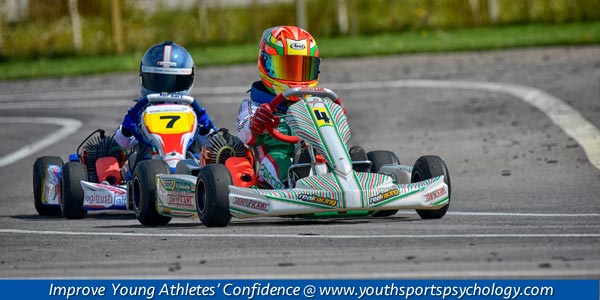
Separating Self-Esteem And Winning in Sports
Colton, a motocross racer, has lots of confidence. But he hates to lose. He hates to lose so much that it takes up to a day to recover after a losing, he says.
Here at the Ultimate Sports Parent and Kids’ Sports Psychology, we think it’s okay to be competitive, like Colton. It motivates kids to work hard in practice and game situations.
But when they’re so focused on winning that it takes them up to a day to recover from a loss, they likely link their self-worth to winning. That’s not the best scenario. When Colton loses, his self-esteem suffers.
Kids should not link their self-esteem with winning. These types of kids are often devastated when they suffer injuries and need to take a break from sports. Take away sports, they struggle with their role identity — it’s hard for them to know who they are!
Kids’ self-esteem should be based on who they are as people—not as players.
How do you as sports parents help kids who link their self-esteem with winning in sports?
Begin by helping kids define their “self-concept.” This is a way of helping kids learn who they are outside of sports. Ask your kids to identify traits that describe them outside of sports.
Ask two or three other people close to your kids to also identify some traits. Use this information to help your kids develop a strong sense of self-concept that is based on their personal traits—not on achievement in sports.
Ask your kids to think about self-worth based on what they identified above. And most important, be clear that no matter how well or poorly your sports kids perform, they are still they same people and you love them unconditionally! You should also try to avoid focusing too much on winning, or the score.
Related Articles on Kids’ Mental Game:
- Can Sports Improve Young Athletes’ Self-Esteem?
- When Youth Sports Feels Toxic, Athletes Need These Skills
- How Youth Sports Coaches Can Build Resilience in Kids
*Subscribe to The Sports Psychology Podcast on iTunes
*Subscribe to The Sports Psychology Podcast on Spotify
The Composed Sports Kid

“The Composed Sports Kid” audio and workbook digital download program for young athletes and their parents or coach helps kids cope with frustration and anger in sports. Help your sports kids learn how to manage expectations and let go of mistakes so they can keep their head in the game.
The Composed Sports Kid system is really two programs in one–one program to train parents and coaches how to help their kids practice composure, and one program that teaches young athletes–ages 6 to 13–how to improve composure, let go of mistakes quickly, have more self-acceptance, and thus enjoy sports more!
